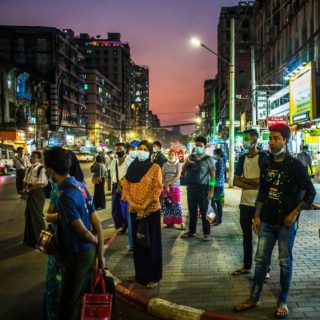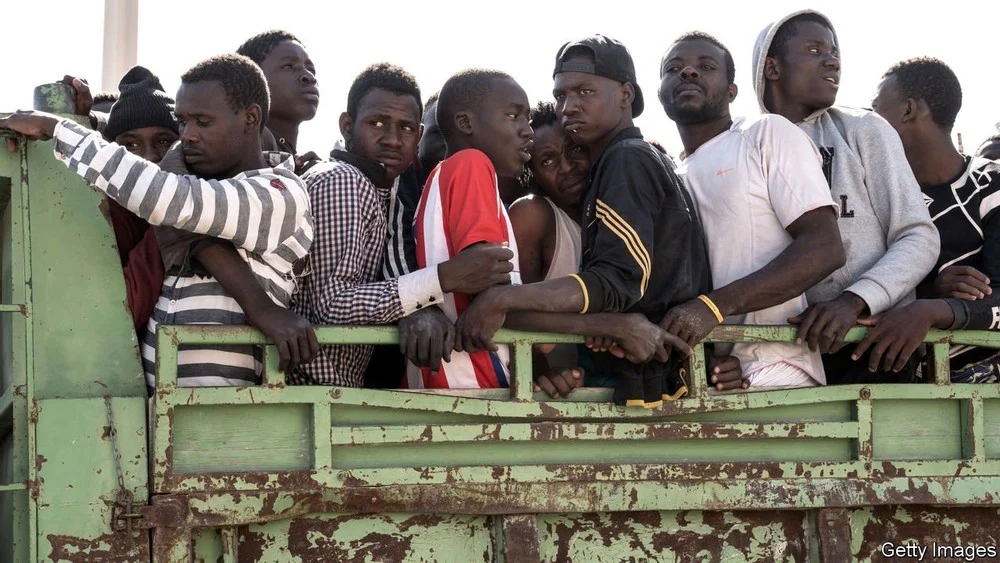Nicaragua has broken diplomatic relations with Taiwan in favor of China, further reducing the number of countries that still recognize the self-governing island as a sovereign nation.
The decision, announced in a statement by Nicaragua’s foreign minister on Thursday local time, dealt a blow to the progress Taiwan had recently made to win broader international support, if not official recognition.
President Biden invited two Taiwanese officials to join the virtual “summit for democracy” now underway in Washington. The small Baltic nation of Lithuania has provoked China’s wrath by agreeing, among other things, to open a trade office with Taiwan under its own name.
Other nations in Eastern Europe, once under the domination of the Soviet Union, have also deepened economic and cultural ties, including the Czech Republic, Poland and Slovakia.
Such efforts have increasingly turned Taiwan into a potential flash point in China’s relations with the world, particularly the United States, which has sought to shore up Taiwan’s status as a de facto nation with more than 23 million people and the world’s 22nd-largest economy by gross domestic product.
Nicaragua’s foreign minister, Denis Moncada Colindres, did not explain the reasons behind the decision, but China has continually put pressure on Taiwan’s official allies to sever ties with the island, which Beijing claims as a territory under what it calls the “one China” policy.
As recently as 2017, Taiwan’s president, Tsai Ing-wen, visited Nicaragua, where President Daniel Ortega vowed to help build international support for the island democracy.
“We deeply regret that the government of President Ortega has disregarded the years of solidarity and friendship between the people of the both countries,” Taiwan’s foreign ministry said in a statement on Friday.
Earlier today, #Nicaragua ended diplomatic ties with #Taiwan. I would like to stress that no amount of external pressure can shake our commitment to freedom, human rights, the rule of law & to partnering with the international democratic community as a force for good.— 蔡英文 Tsai Ing-wen (@iingwen) December 10, 2021
Now, only 13 nations and the Vatican still recognize Taiwan, down from 21 in all at the beginning of 2017. Since then, Panama, the Dominican Republic, Burkina Faso, El Salvador, Kiribati, the Solomon Islands and now Nicaragua have switched their recognition to the People’s Republic of China. China has sought to keep Taiwan isolated, even barring it from participating in international forums like the World Health Assembly, in hopes of forcing it to accept unification with the mainland as an inevitability.
“While this will be disappointing for Taiwan, it’s important to keep it in perspective,” said Natasha Kassam, a former Australian diplomat in Beijing who is now with the Lowy Institute, an independent research organization in Sydney. “In recent years, Taiwan has been growing its ties with unofficial large partners like Japan and the United States, and those are much more important for Taiwan’s place in the world than its smaller diplomatic partners.”
Within minutes of Nicaragua’s announcement, Chinese state media reported that a delegation of Nicaraguan officials were in Tianjin, the port city where China has been holding diplomatic meetings during the coronavirus pandemic. Their presence indicated coordination between the two nations over the timing of the decision.
Nicaragua ended diplomatic relations once before, in 1985, after Mr. Ortega first came to power, but reversed that decision five years later, under President Violeta Chamorro.
The latest switch came a month after Mr. Ortega was re-elected for a fourth consecutive term as president after a vote that was widely criticized for consolidating his increasingly authoritarian rule.
The United States criticized the diplomatic switch.
“Without the mandate that comes with a free and fair election, Ortega’s actions cannot reflect the will of the Nicaraguan people, who continue to struggle for democracy and the ability to exercise their human rights and fundamental freedoms,” the State Department’s spokesman, Ned Price, said in a statement that reflected American criticism of the recent election.
“We do know, however, that this deprives Nicaragua’s people of a steadfast partner in its democratic and economic growth,” he added.
China’s ambassador to the United Nations, Zhang Jun, commended Nicaragua’s decision as one “in line with the prevailing trend of the time and people’s aspiration.”
“The One-China principle is a consensus widely accepted by the international community and allows no challenge,” Mr. Zhang wrote on Twitter, which is banned in China.
FEATURED IMAGE: When the president of Taiwan, Tsai Ing-wen, visited Nicaragua in 2017 for the inauguration of President Daniel Ortega, he vowed to help build international support for the island democracy.Credit…Jorge Torres/European Pressphoto Agency
By Steven Lee Myers/The New York Times





